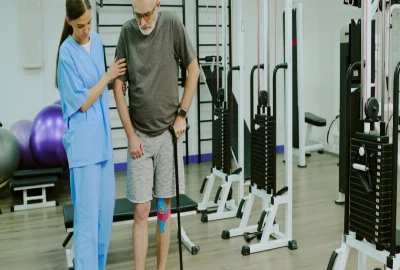The Spoiler Effect: Has Instant Access Ruined the Entertainment Experience?

Entertainment today is faster, louder, and more accessible than ever. With just a few clicks, audiences can stream a new series, catch the latest blockbuster online, or scroll through social media to see instant reactions. But this digital convenience comes with a price: the rise of The Spoiler Effect. In an age where content spreads globally in real time, fans often learn critical plot twists or endings before experiencing them firsthand. For many, this ruins the thrill, while others argue spoilers don’t matter as much as we think. This blog explores how instant access, binge-watching, and digital culture have reshaped the entertainment experience, asking the big question—has the magic of storytelling been compromised?
The Evolution of Spoilers in Entertainment

From whispers to headlines
In the past, spoilers were passed through casual conversations at school or around the office. A friend who saw the weekend movie early might accidentally reveal a twist, but the spoiler ecosystem was small and local. Today, spoilers live on every digital corner—from Twitter threads to YouTube breakdowns—where plot details spread globally in minutes.
Spoilers in the pre-digital era
Classic films and shows built suspense through scarcity. Audiences had to wait weeks for episodes or months for sequels, and spoilers rarely traveled fast enough to ruin the experience. That anticipation created a collective cultural moment that bonded viewers.
The spoiler shift in the digital age
Streaming platforms, entertainment blogs, and influencer commentary mean spoilers are now inescapable. The very way content is consumed has changed, making the spoiler less of an accident and more of an inevitable part of fandom.
Binge-Watching and the Death of Weekly Anticipation

The weekly ritual of TV
Appointment television once structured lives. Families would gather weekly to catch the next episode of their favorite series, with suspense building over time. That delay fueled speculation and watercooler conversations, extending a show’s cultural relevance.
The Netflix model of instant gratification
Streaming services shattered that format. Full seasons now drop at once, giving fans the option to watch everything immediately. While this model satisfies audience demand, it creates uneven viewing experiences—some finish in a weekend, while others pace themselves, increasing the risk of spoilers.
The cultural downside of speed
When everyone consumes media at different paces, shared cultural moments fracture. By the time some viewers catch up, online discussions are already dissecting endings, characters, and plotlines. The shared “journey” of suspense has been replaced by fragmented fandoms.
Social Media and the Spoiler Epidemic

Platforms as spoiler minefields
Twitter, Instagram, TikTok, and Reddit have turned into spoiler-heavy spaces. From memes to fan theories, plot details leak the moment new content drops. Even attempts to avoid spoilers often backfire when algorithms push trending posts.
Influencer reviews and reactions
YouTube and TikTok creators often share “reaction” videos or breakdowns within hours of release. While exciting for fans who want instant commentary, this creates a race to post the fastest content—even if it spoils key storylines.
Community versus caution
Online fandom thrives on instant reactions and theories. For some, spoilers enhance the experience by making them part of the conversation. For others, it undermines the personal discovery that makes storytelling magical.
Psychology of Spoilers: Do They Really Ruin the Experience?

The science of anticipation
Research suggests suspense and surprise trigger dopamine, heightening emotional responses. Spoilers can disrupt this process by lowering the stakes before a reveal.
Studies on spoiler enjoyment
Interestingly, some studies argue spoilers may increase enjoyment, as audiences focus more on how a story unfolds rather than what happens. This suggests the spoiler effect might be more psychological than absolute.
Individual differences in tolerance
Spoiler sensitivity varies. Some fans are devastated by knowing a twist early, while others embrace spoilers as a way to engage deeper with a story. The debate highlights how entertainment is both a personal and shared experience.
Industry Strategies to Combat Spoilers

Embargoes and review restrictions
Studios now impose strict review embargoes to limit leaks before official releases. Critics and influencers often must sign agreements not to reveal plot details until a set date.
Controlled streaming releases
Some platforms experiment with hybrid release models—dropping a few episodes at a time rather than full seasons—to restore suspense and reduce spoiler saturation.
Marketing the spoiler
Interestingly, some studios weaponize spoilers. Trailers hint at twists, and buzz around leaked moments often drives curiosity and streaming numbers. The spoiler itself becomes part of the hype machine.
Fans’ Coping Mechanisms in the Spoiler Era

Digital detoxing during releases
Many fans temporarily leave social media during major premieres to avoid spoilers. Muting keywords, blocking hashtags, and delaying online engagement have become common strategies.
Niche community discussions
Instead of open platforms, fans often gather in spoiler-safe forums or Discord groups where everyone is caught up. These safe spaces recreate the intimacy of shared discovery.
Accepting spoilers as inevitable
For some, the constant battle against spoilers feels exhausting. They shift perspectives, treating spoilers as part of the entertainment landscape, focusing on craft, performances, and themes rather than just plot twists.
The Future of Storytelling in a Spoiler-Heavy World

Interactive and immersive entertainment
With VR, gaming, and live events, creators experiment with formats where spoilers matter less, as the experience is participatory rather than strictly narrative.
AI-driven personalization
AI could one day tailor content releases or even alter plotlines based on viewer choices, reducing the traditional spoiler threat by making experiences individualized.
Redefining suspense
Storytellers may innovate new ways of building tension that rely less on shock and more on emotional resonance, ensuring that even if a plot twist is spoiled, the journey remains compelling.




